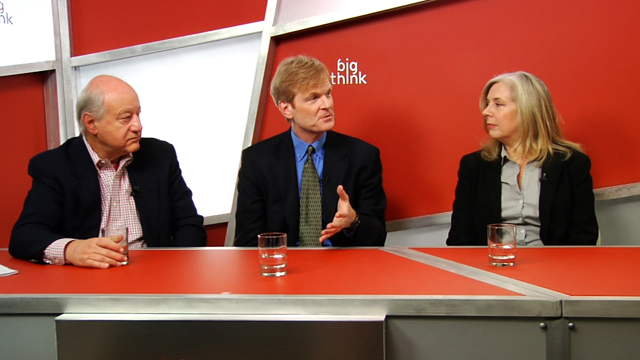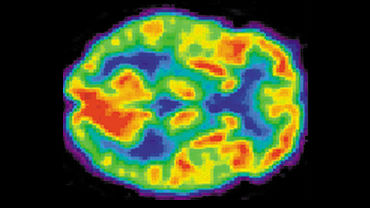Surprising Science
All Stories
Freud’s ideas have become part of the fabric of everyday life—yet his methods are going out of favour. Robert Rowland Smith argues that the professionals have got it wrong.
To the outrage of breastfeeding campaigners and probably the utter confusion of most women with small babies, scientists today advocate rewriting the rulebook on breastfeeding.
Materials scientists in California, using a innovative new recipe, have made a special metallic glass with a strength and toughness greater than any known material.
British scientist Simon Conway Morris believes there are only two possibilities for alien life; either we’re alone or aliens exist, and they are out to get us.
A technology cleanse means you unplug for a short time with longer-term benefits for your relationships. But be warned: As with any other diet, it isn’t easy.
Should everyone be given regular CT scans to look for the disease?
Artificially separated from a natural cycle of light and dark, the bodies and brains of mice go haywire in ways that may mimic the human effects of circadian disruption.
The idea that language shapes thought was taboo for a long time, said Dan Slobin, a psycholinguist at the University of California, Berkeley. “Now the ice is breaking.”
Statistical analysis must find ways to expose and counterbalance all the many factors that can lead to falsely positive results — among them human nature and the effects of industry money.
Why is it that astrobiologists consider water a prerequisite when seeking out alien life? Steve Nerlich of Universe Today details what alien biochemistry would look like.
Researchers have made strides in understanding the human mind, filling the hole left by the atrophy of theology and philosophy, says David Brooks at The New Yorker.
Given his devotion to empirical fact, it seems odd to think that Galileo’s most important ideas might have their roots not in the real world, but in a fictional one.
In 15 to 20 years, says futurist Ray Kurzweil, a biotechnology revolution will yield powerful ways for us to reprogram our genes. Our bodies will be altered on the genetic […]
Having a larger waistline may shrink your brain. Obesity is linked to an increased risk of type 2 diabetes, which is known to be associated with cognitive impairment.
British military scientists plan to develop an army of “invisible” tanks ready for use on the battlefield within five years. The tanks will use electronic camouflage.
New data shows that the more people drink, the more they exercise. Scientists offer different explanations, such as a tendency toward a “sensation-taking lifestyle.”
For a disorder that affects 1 in every 110 American children and 1 in every 70 American boys, there are a surprising number of misconceptions about autism. Study after study […]
The autism-vaccine fraud has left a lot of mistrust to mop up. Since Dr. Andrew Wakefield’s erroneous report, science and public health took a huge step backward.
When we cry, we may be doing more than expressing emotion. Our tears, according to striking new research, may be sending chemical signals that influence others’ behavior.
Who will set 2011′s standards in NewNet technologies like social media and real-time feeds? These are the disrupters to watch: Facebook, Twitter, Skype and LinkedIn.
The symptoms of autism are far better understood than its causes; psychiatrists classify the disorder as having two major components: impaired social cognition and a tendency toward narrow interests and repetitive behaviors.
A new device worn on the arm or leg trains you to be aware of your brain function, so you can regain focus when you drift off at work, lose concentration on the back nine, or fall asleep at the wheel.
What are the real causes of social pathology—and can affluence actually be part of the problem? David Wilson says solving social ills by spending money rarely works.
When faced with decisions, our ability to make hunch evaluations varies considerably: Intuition can either be a useful ally or it can lead to costly and dangerous mistakes.
More than 30 years after NASA’s Viking landers found no evidence for organic materials on Mars, scientists say a new experiment on Mars-like soil shows Viking did, in fact, hit pay dirt.
Amazingly, your walking speed is just as good an indicator of how long you’ll live as your health history, smoking habits, and blood pressure combined.
One of the biggest mysteries of physics could end with what scientists find 4,850 feet below the Black Hills of South Dakota, where a laboratory will replace a defunct gold mine.
When we feel distant from our work—when it seems wonderfully far away—we are able to think about work in a new way. We have the breakthrough while on break, says Jonah Lehrer.
Smear campaigns work because people are more likely to believe misinformation about someone they see as different from themselves, sometimes even blatant lies.
Only lately have researchers begun to study courage systematically, to try to define what it is, where it comes from and how it manifests itself in the body and brain.



